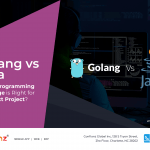Changes in manufacturing are often so radical and have such far-reaching consequences that they’re called revolutions. The three previous revolutions were mechanical in the late 1800s, electrical in the early 1900s, and computing in the 70s.
This present stage is the digital revolution, which is also referred to as Industry 4.0.
Each stage of the industrial revolution is characterized by new technologies that improve efficiency and productivity to open the door for innovations.
So, what does Industry 4.0 mean for your manufacturing business? First, nearly all manufacturers have taken advantage of the advances of the last three revolutions. But since we’re now in the middle of the fourth, new technologies are emerging, and not everyone is keeping up.
If you’re looking for an advantage over the competition and want to fully bring your business into the 21st century, read our breakdown of some essential new technologies.
The Differences Between Industry 3.0 and Industry 4.0
At first glance, the difference between the last two industrial revolutions may not be too apparent. And that’s partially true! Industry 4.0 is more of an improvement and outgrowth of 3.0 than a diversion from that course.
Industry 3.0 used computing to automate the manufacturing process. This improved the efficiency of production and optimized the production line.
Industry 4.0 has taken those ideas and run with them, using data collection and AI to hyper automate processes. Modern technologies like robotics and artificial intelligence help plants work faster with less human input.
The aim of Industry 4.0 is to produce a more sustainable, efficient, and intelligent manufacturing industry that will be able to respond quickly to market changes. It is a digital transformation of manufacturing processes in which physical objects are seamlessly integrated with technological systems.
Some of the critical factors and systems that have allowed for these developments are:
- Cyber-physical systems integrate digital information with physical processes. They are used in manufacturing and a wide range of other industries such as healthcare, transportation, and architecture.
- The Internet of Things (or IoT) is composed of physical objects connected to the internet that can be accessed remotely. These objects are usually embedded with electronics, software, sensors, and network connectivity, enabling them to collect and exchange data.
- The Industrial Internet of Things (or IIoT) is a network of physical objects and their virtual representations linked to the internet. It is a network designed to provide data to be used to optimize business operations and decision-making.
- AI and machine learning enable manufacturers to be more productive by automating tasks, improving quality, reducing costs, increasing efficiency, improving sustainability, and even providing personalized customer experiences.
Augmented Reality
Augmented Reality (AR) allows users to see and interact with an amalgamation of the natural and digital world.
While not entirely new to manufacturing, it’s only recently that some companies have started experimenting with new applications for AR. For instance, Boeing uses AR to help assemble complicated aircraft parts by projecting instructions onto the assembly line.
Augmented Reality can be used in many different ways in the manufacturing industry to boost productivity.
For example, it can be used for training purposes by showing instructions on how to complete tasks on an assembly line. AR can also provide real-time information about the status of machines and equipment, which would help companies avoid downtime caused by maintenance issues.
3D Printing
3D printing is when an object or structure is created by adding layer upon layer of material until it forms an object with physical form.
This technology was first used in the manufacturing industry in 1983 when Chuck Hull created a machine that could print out parts for airplanes using lasers and plastic resin.
3D printing has been around for decades, but it has only recently become affordable and accessible to a broader range of companies. 3D printing is revolutionizing the manufacturing industry since companies can quickly prototype new products, which can then be manufactured on demand.
3D printers have typically been used for prototyping, or low volume production runs. However, as the technology evolves, 3D printers will be able to produce higher volumes and more complex objects.
3D printers are also being used for large-scale projects such as bridges and buildings. We’ve only explored the tip of the iceberg when it comes to the potential of 3D printing.
Robotics
Manufacturers have used robots for decades to perform unsafe or dangerous tasks for humans. However, they have only recently become a significant player in the manufacturing industry because of advances in machine learning. Instead of simply repeating what they were initially programmed to do, robots can learn from their mistakes and adjust accordingly.
Industrial robots are performing more and more tasks in manufacturing facilities, doing everything from welding to assembling parts to packaging products.
Robots can also work around the clock with no need for sleep or time off, they don’t make mistakes or get distracted, and they can do things much faster than any human ever could. Moreover, they can be programmed to do repetitive tasks at high speeds with precision.
While robots may seem to threaten job security, they actually offer opportunities. As robots take on more involved tasks, humans can focus on jobs that require a higher level of skill and creativity, like design or marketing.
Robots are taking over some jobs, but they are also creating new ones. There will be a need for engineers to design and maintain these robots and software developers who can develop new programs for them to follow.
Conclusion
The manufacturing industry is one of the fastest-growing industries in the United States. It is also one of the most competitive, with a global market worth trillions of dollars. To produce products at a lower cost and higher quality, manufacturers have to adopt new technologies and methods of production. If you want to take advantage of everything Industry 4.0 offers, Confianz can help!
We are a Software development company based out of Charlotte, North Carolina – focused on Odoo ERP implementation, Mobile Application development and Web application development. We work with businesses and entrepreneurs on the cutting edge of technology.
So give us a call today to get started.







